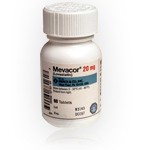Managing Dyslipidemia: A Simple Guide to Better Heart Health


What Is Dyslipidemia and Why Should You Care?
Have you ever wondered what it means when your doctor says your cholesterol levels are too high or too low? This condition is called dyslipidemia, and it happens when there is an imbalance of fats in the blood. These fats include cholesterol and triglycerides, and they are important for your body. But when the balance is not right, it can cause serious problems.
- Dyslipidemia can raise the risk of heart attacks and strokes
- It usually does not cause symptoms, so people may not know they have it
- It is often found during a routine blood test
- Both high and low levels of fats in the blood can cause health problems
- Early detection can help prevent future health issues
The good news is that dyslipidemia can be managed with the right lifestyle and, if needed, medications. Learning more about this condition is the first step toward better health.
Causes of Dyslipidemia: What Leads to This Condition?
Many things can cause dyslipidemia. Some people inherit it from their parents, while others develop it due to their habits and health conditions. It is important to understand these causes so you can take action to reduce the risk.
- Eating too many fatty or sugary foods
- Being overweight or not active enough
- Smoking cigarettes or drinking too much alcohol
- Certain health conditions like diabetes or thyroid problems
- Family history of cholesterol problems
By making healthy choices, you can lower the chance of getting dyslipidemia or improve your condition if you already have it.
Symptoms: How Do You Know If You Have Dyslipidemia?
Most people with dyslipidemia do not feel sick or notice any changes in their bodies. That is why it is sometimes called a "silent" condition. Still, it can quietly damage your blood vessels over time.
- No clear symptoms in the early stages
- Some people may feel chest pain or get tired easily
- Yellow fatty deposits can appear on the skin in severe cases
- Blood tests are the only way to know for sure
- Regular check-ups are important even if you feel fine
Do not wait for symptoms to appear. A simple blood test can tell you if you need to take action.
Risks: Why Is Dyslipidemia Dangerous?
Dyslipidemia may not hurt today, but it can cause serious harm in the future. When fats build up in your blood, they can block the flow and damage the heart and brain. That is why it is important to treat the problem early.
- Increases the risk of heart attack and stroke
- Can lead to high blood pressure and clogged arteries
- May affect blood flow to legs and other parts of the body
- The longer it is untreated, the more harm it can do
- Can reduce quality of life over time
Taking care of your blood fat levels now can protect your future health.
Prevention and Lifestyle Changes: What Can You Do?
The best way to avoid or manage dyslipidemia is to change your daily habits. You do not have to do everything at once—small steps can lead to big improvements.
- Eat more vegetables, fruits, whole grains, and lean proteins
- Avoid fried foods, sugary drinks, and processed snacks
- Exercise at least 30 minutes most days of the week
- Quit smoking and reduce alcohol intake
- Get regular health check-ups and blood tests
Making these changes can greatly improve your health and help you avoid medication or reduce the need for it.
How Mevacor (Lovastatin) Can Help Manage Dyslipidemia
Sometimes, even with a healthy lifestyle, blood fat levels stay too high. This is where medication comes in. Mevacor, which contains Lovastatin, is a common treatment that can help lower cholesterol and protect the heart.
- Mevacor works by slowing down the body's cholesterol production
- It helps lower bad cholesterol and raise good cholesterol
- This medication is often taken once a day with food
- It is usually used along with a healthy diet and exercise
- Regular blood tests help track how well it is working
Doctors often suggest Mevacor for people who are at high risk of heart disease or stroke. It is considered safe and effective when taken as directed.
If you are prescribed Mevacor, be sure to follow your doctor's advice. Tell them if you have any side effects or if you are taking other medicines. Most people do well on Mevacor and see big improvements in their blood fat levels. It is not a cure, but it is a strong tool to help manage dyslipidemia over the long term.
Living with dyslipidemia does not mean you cannot be healthy. By learning about the condition, making smart lifestyle choices, and using treatments like Mevacor when needed, you can take control of your health. Regular check-ups and a positive mindset go a long way in keeping your heart and body strong.
Article Post: Editorial Team of RXShop.md
(Updated at Jul 28 / 2025)

